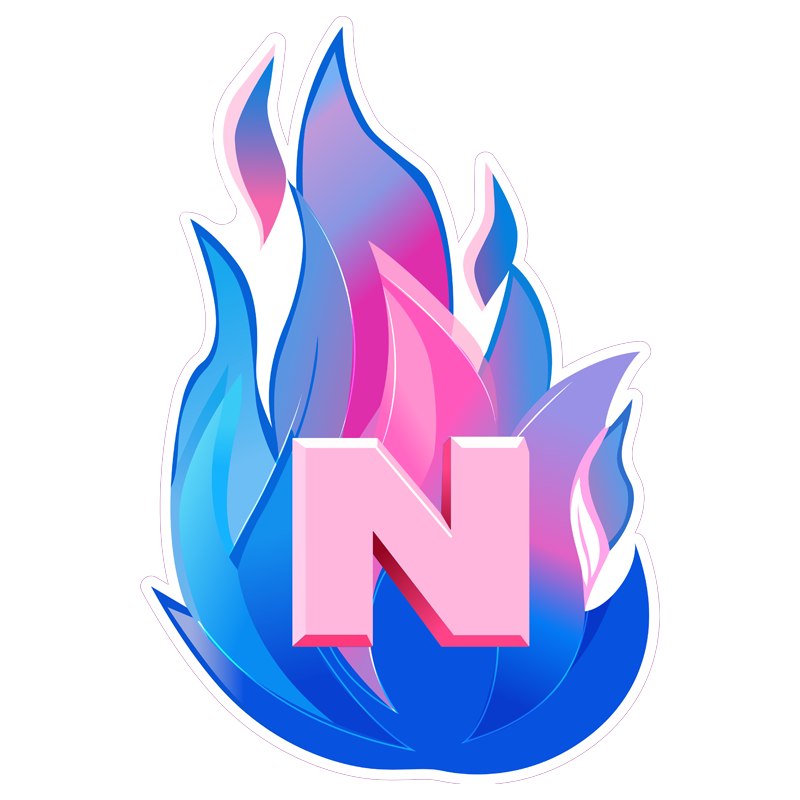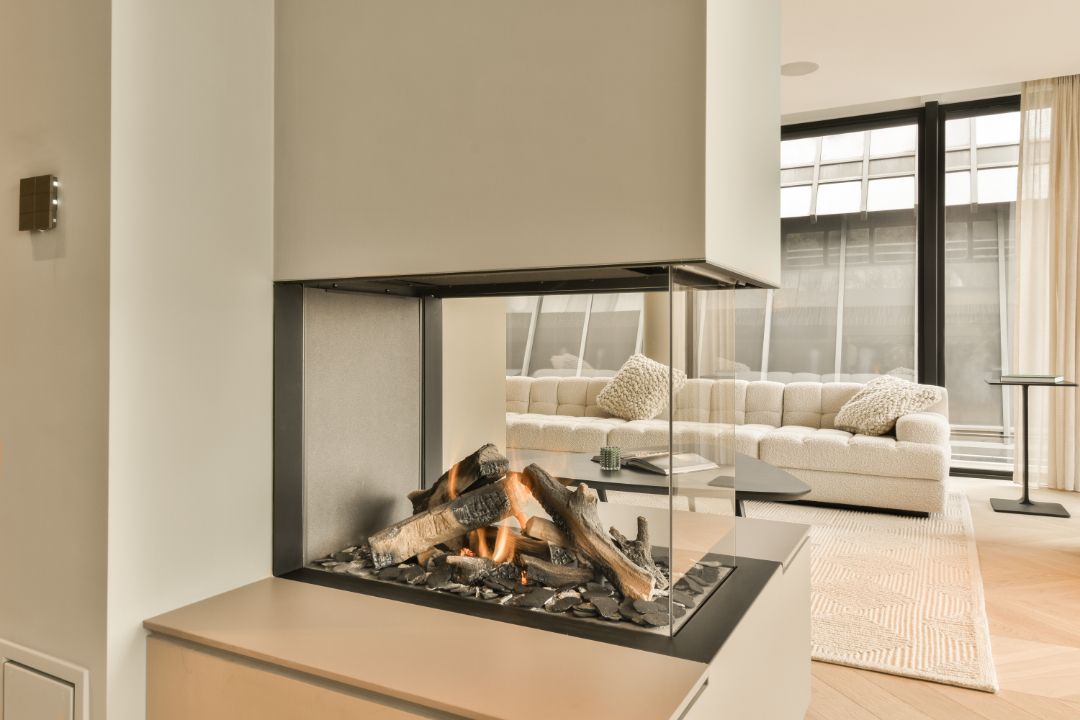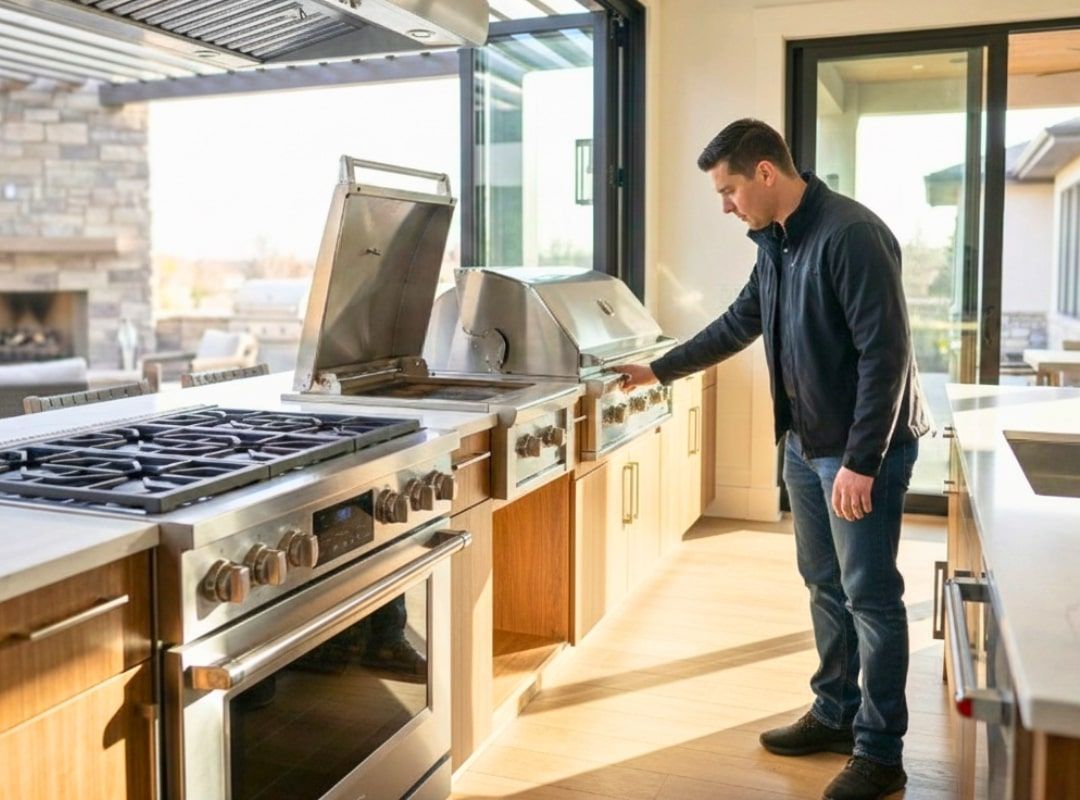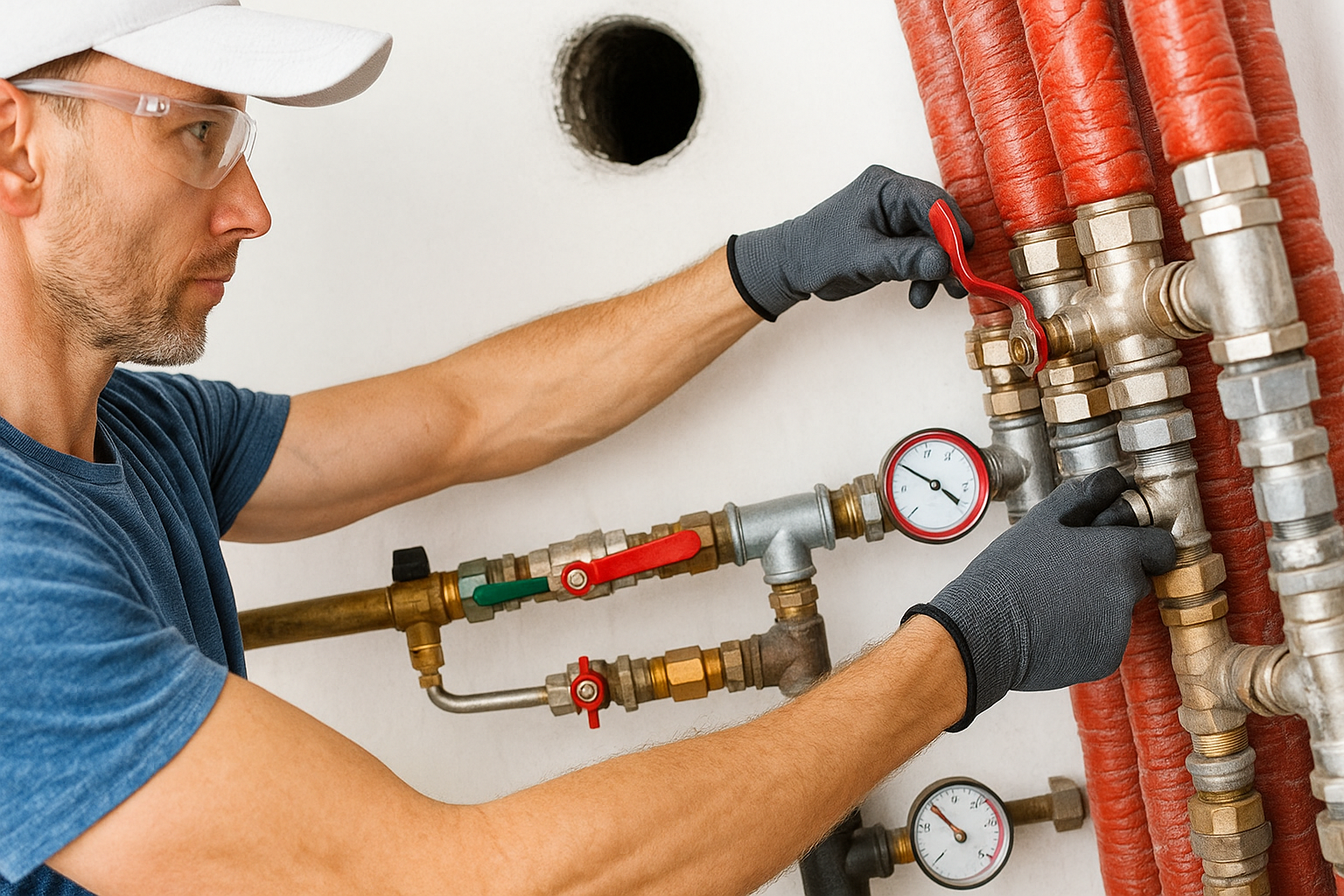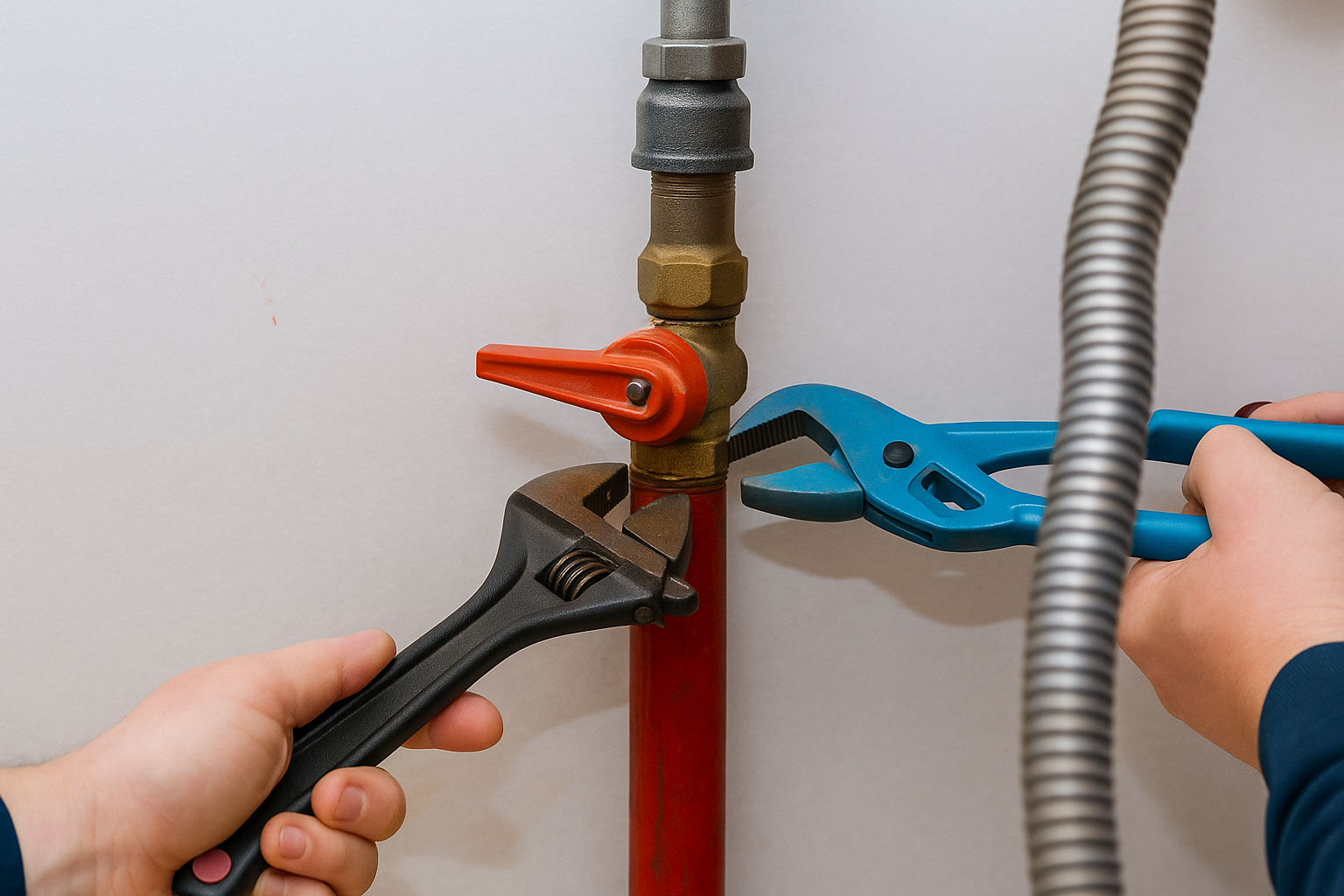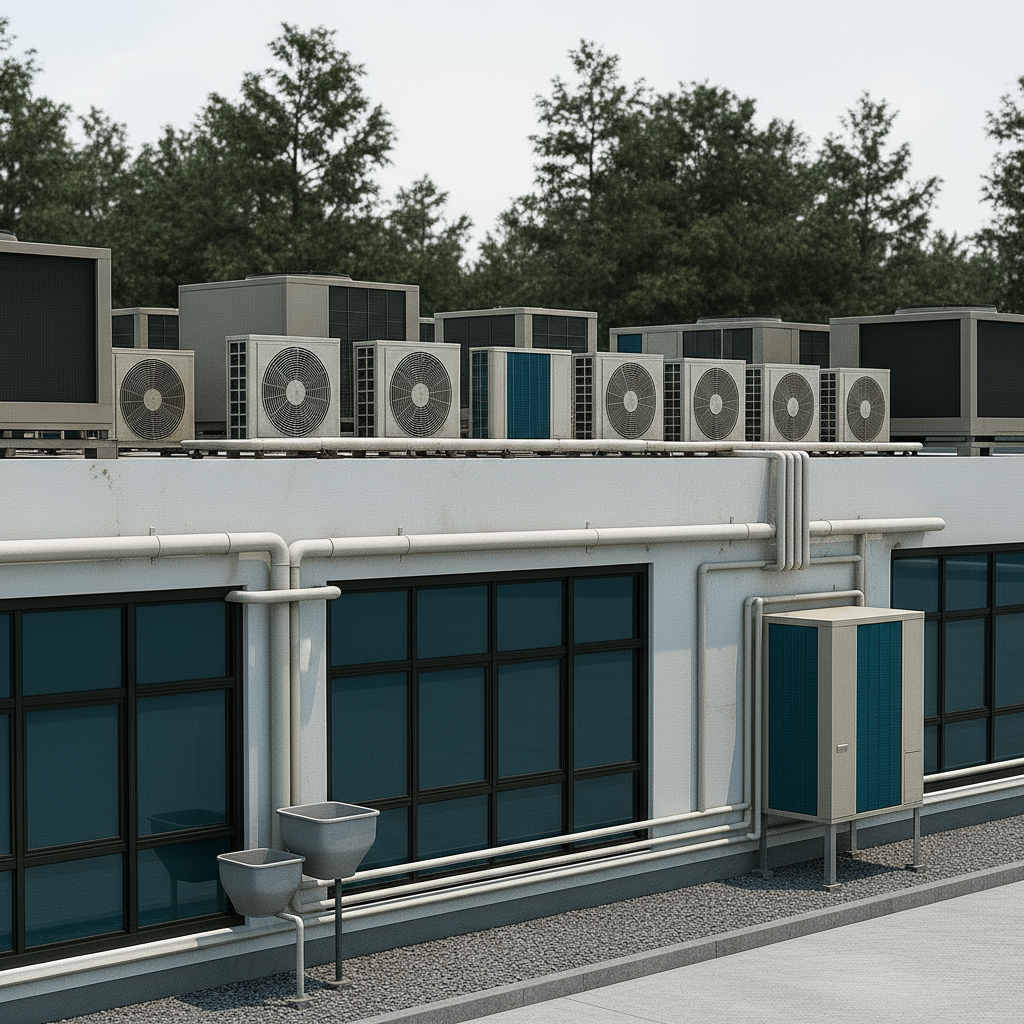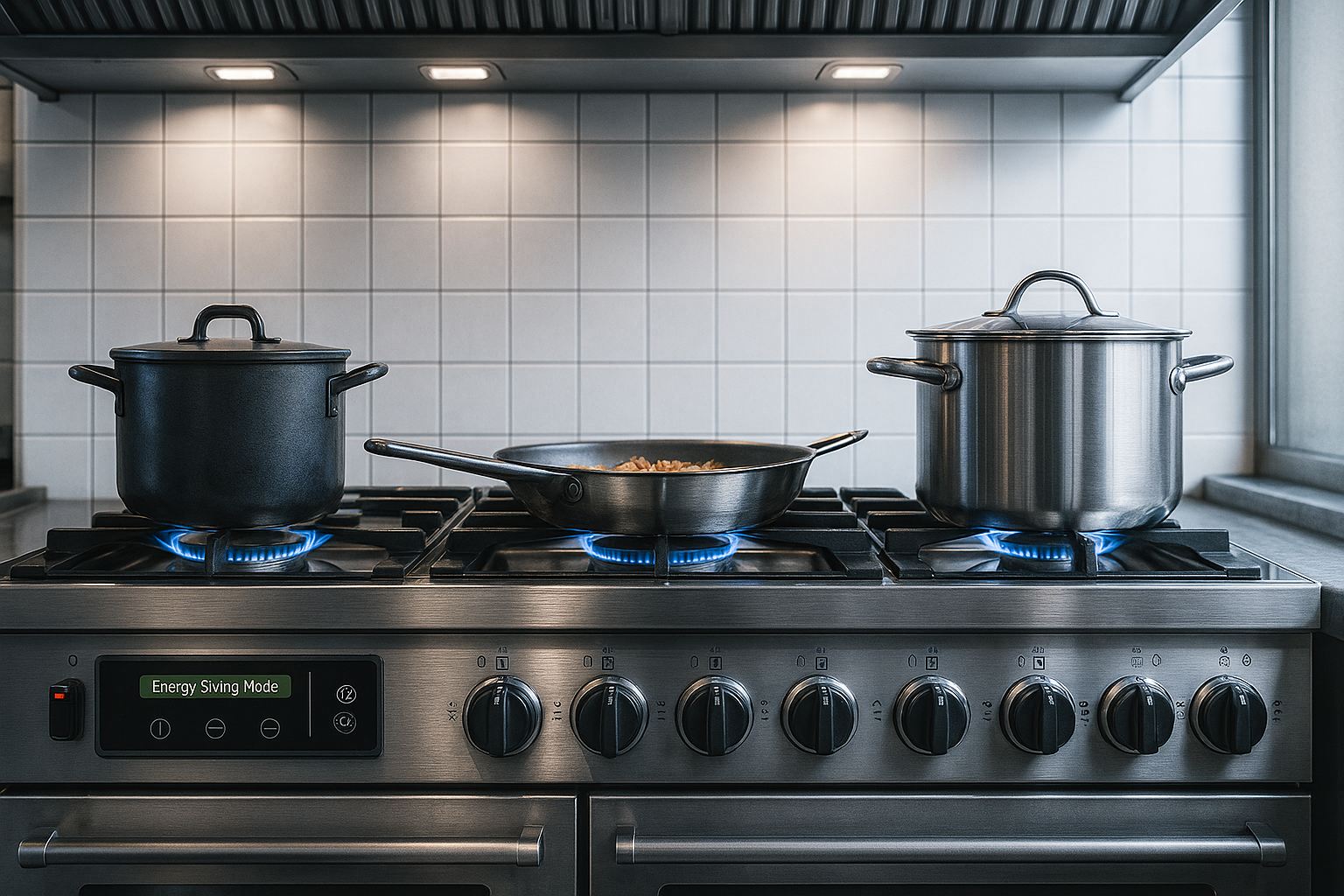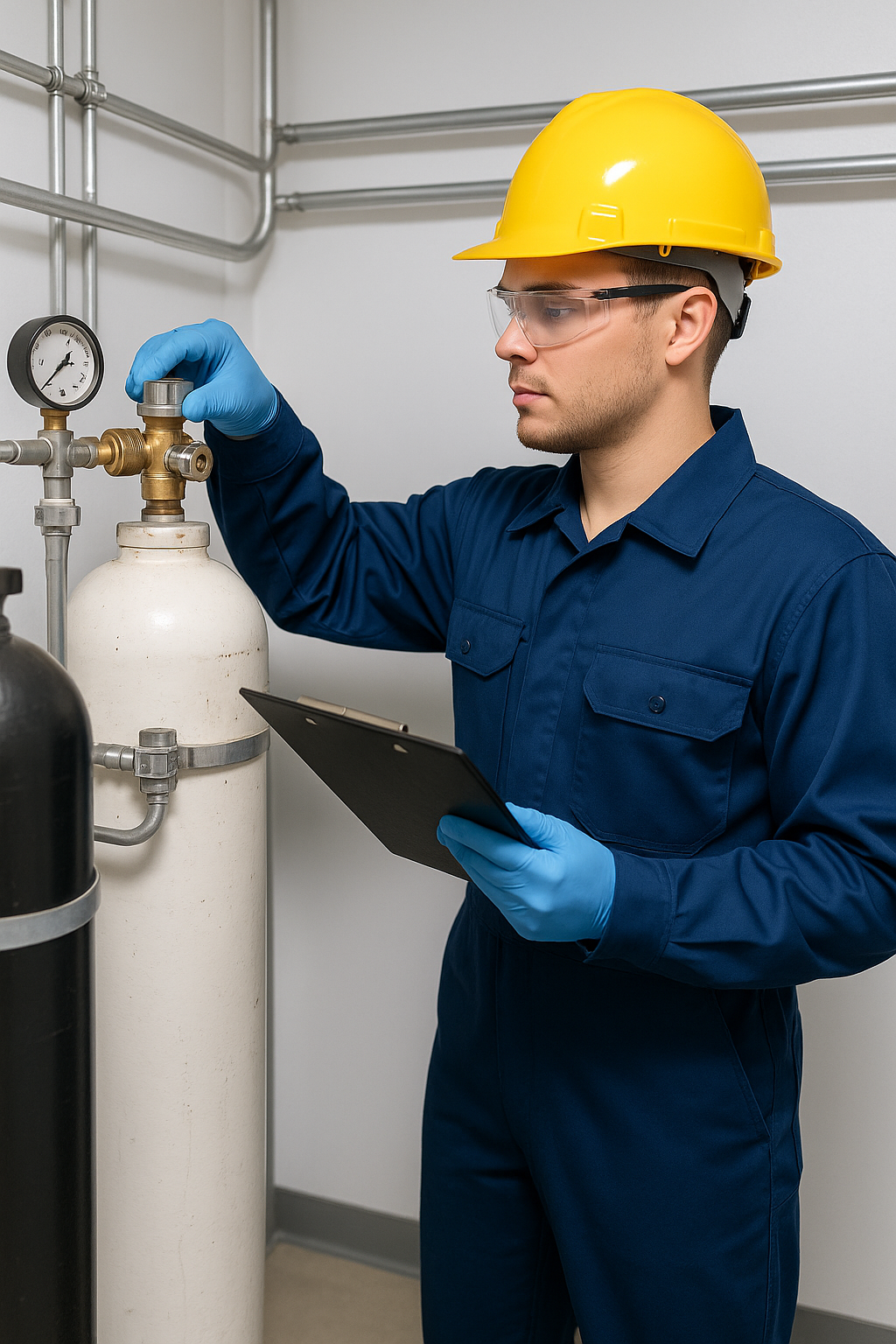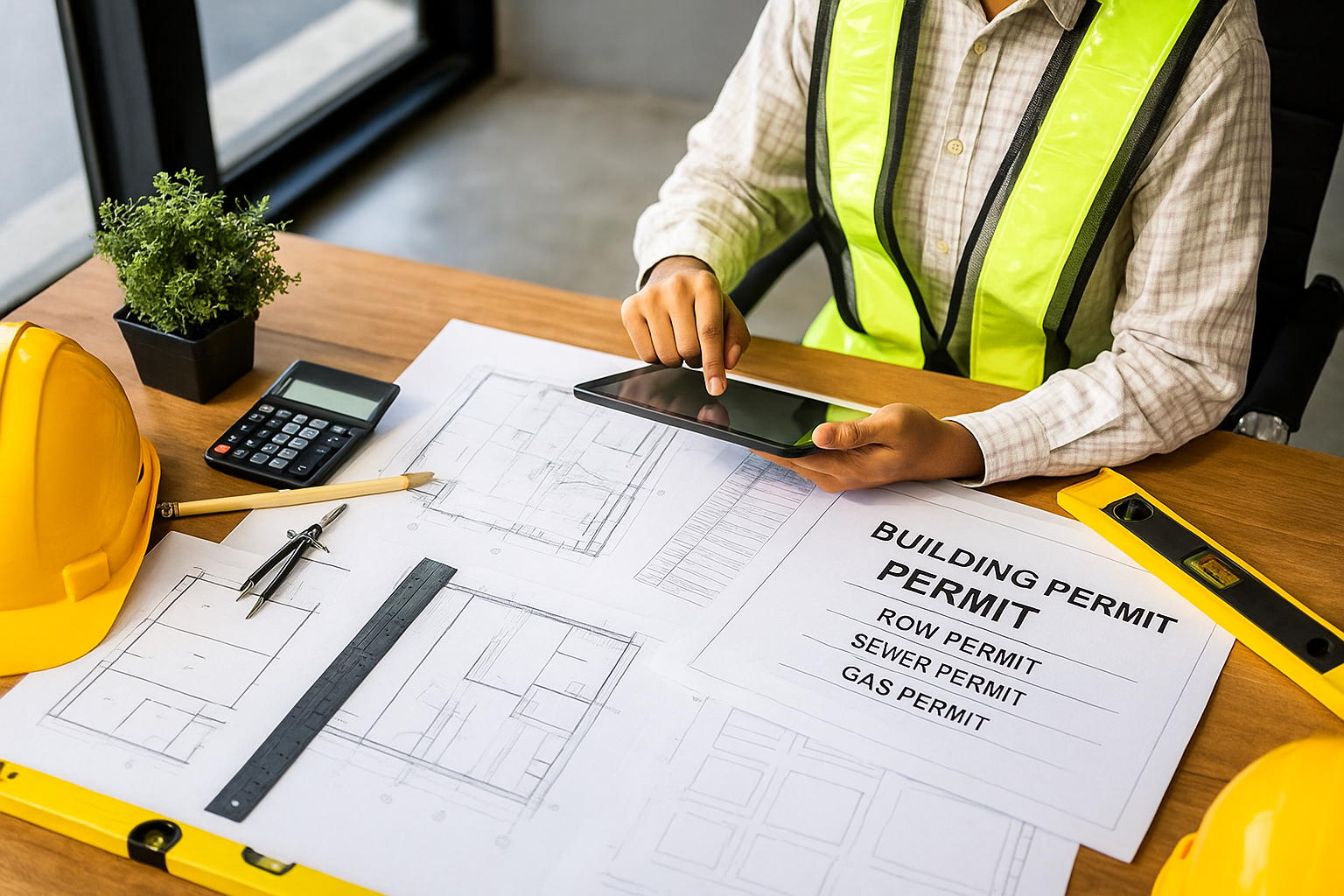Can I Run Multiple Appliances on One Gas Line?
TLDR;
Yes, you can run multiple appliances on one gas line, but only if the line is properly sized for the total gas demand. The pipe diameter, length, and appliance BTU ratings must all be balanced according to code. Always consult a licensed professional like
NOVA Gas to evaluate capacity and ensure your system meets safety and Virginia building standards.
Understanding Gas Lines and Appliance Loads
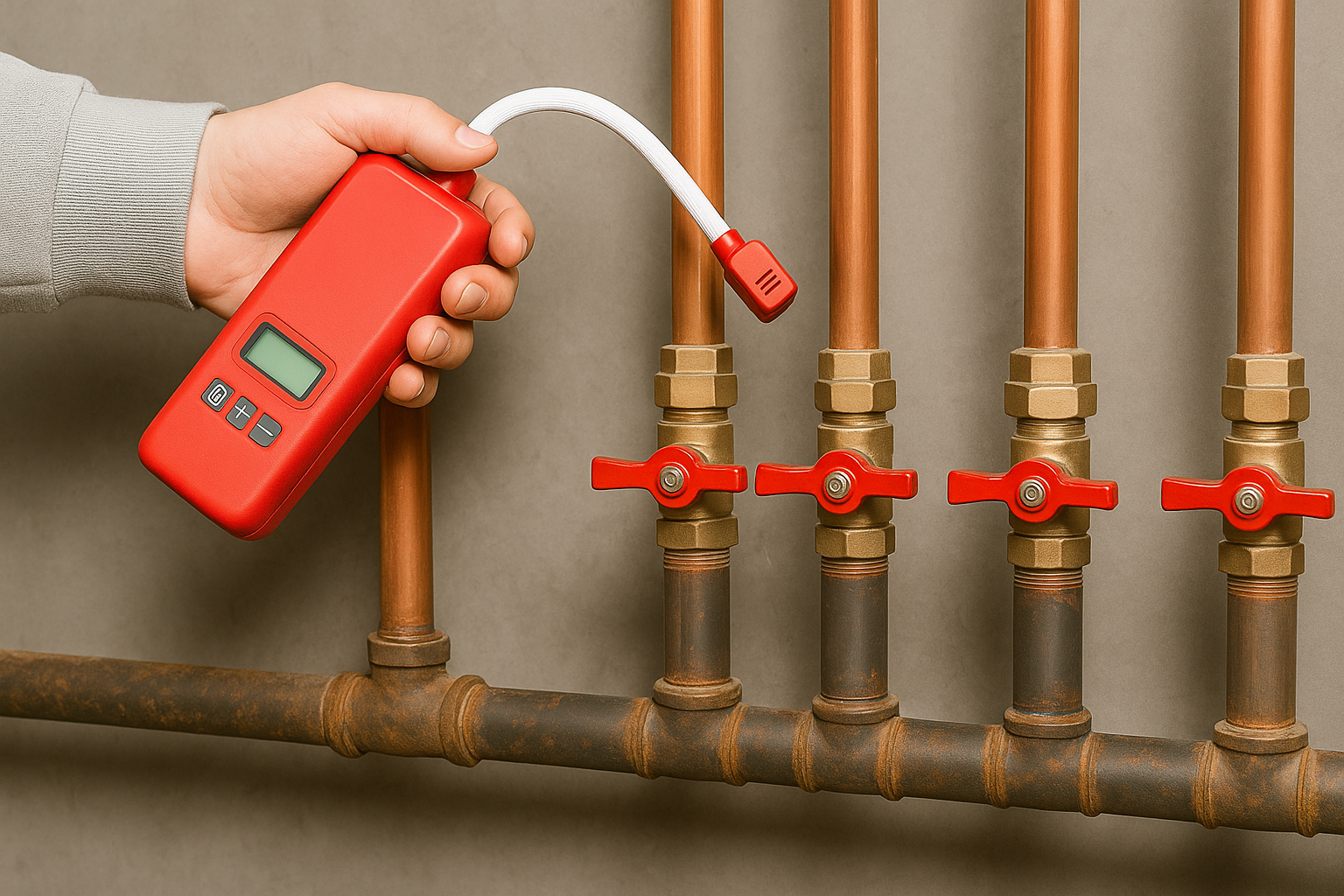
A gas line delivers fuel from your home’s meter to each appliance. Each appliance has a specific BTU (British Thermal Unit) requirement. BTU ratings tell you how much gas an appliance consumes. When several appliances share one gas line, their combined BTU load determines whether the line can handle the total demand.
For example:
- A gas stove often uses 40,000 to 65,000 BTUs.
- A water heater can range from 30,000 to 75,000 BTUs.
- A furnace might draw 80,000 to 120,000 BTUs.
- A gas dryer uses about 20,000 BTUs.
If your gas line cannot deliver enough fuel to meet the total BTU requirement, one or more appliances will not perform efficiently.
Pipe Diameter and Length Affect Gas Capacity
Gas flow depends on both pipe diameter and run length. A smaller pipe restricts flow, while a longer pipe increases pressure loss.
Key points:
- A ½-inch pipe may only support one appliance, depending on BTU load and distance.
- A ¾-inch or 1-inch line can serve multiple appliances if properly sized.
- Pressure drop increases with pipe length. The farther the gas travels, the less pressure reaches the appliance.
This is why professionals calculate pipe size using charts that match BTUs, distance, and pipe diameter.
Natural Gas vs Propane Capacity Differences
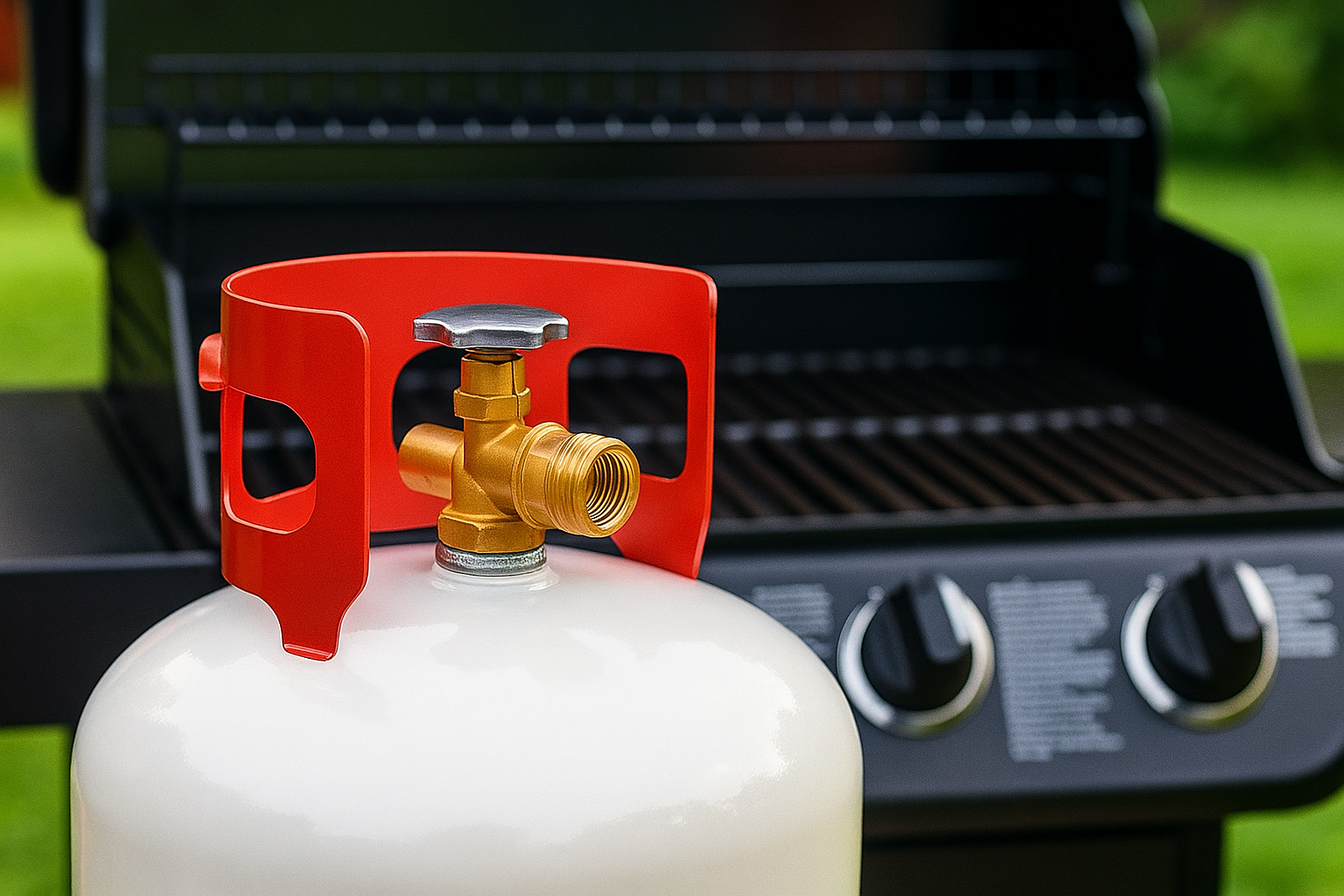
Natural gas and propane differ in energy density. Propane delivers more BTUs per cubic foot, so a propane system may use smaller pipe sizes for the same total energy output. Still, the principle remains the same: the line must be sized for total load, pressure, and distance.
Virginia homes commonly use natural gas supplied by utilities. NOVA Gas ensures each project aligns with the specific gas type and its required flow rate.
Can You Really Run Multiple Appliances Off One Gas Line?
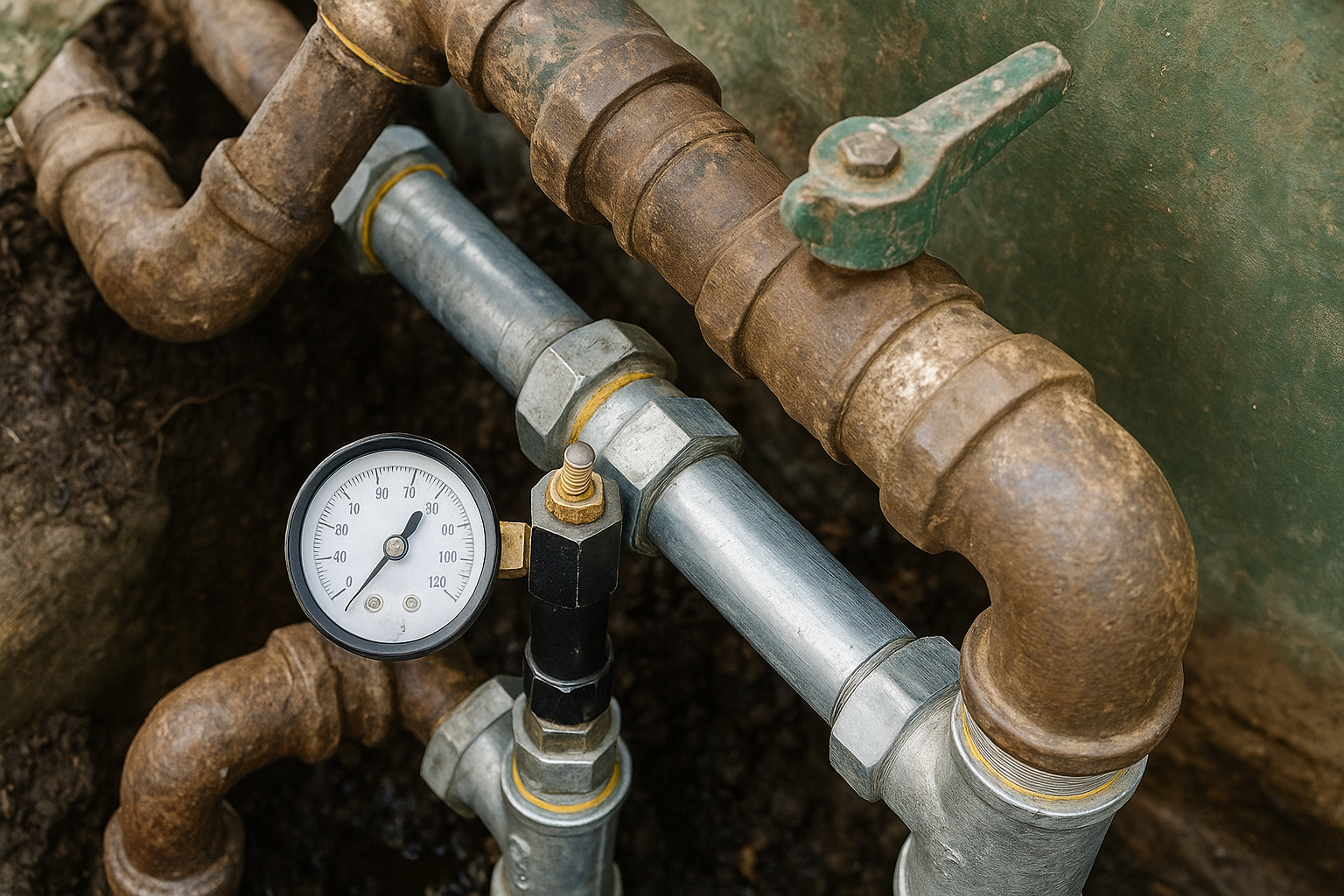
Yes, but not every system can handle it. In Virginia homes, running several gas appliances from one line works when:
- The line’s diameter is large enough for the combined load.
- The total length from the meter to the last appliance is short.
- Branching is limited to reduce pressure loss.
- Each connection is properly sealed and tested.
Standard Scenarios in Virginia Homes
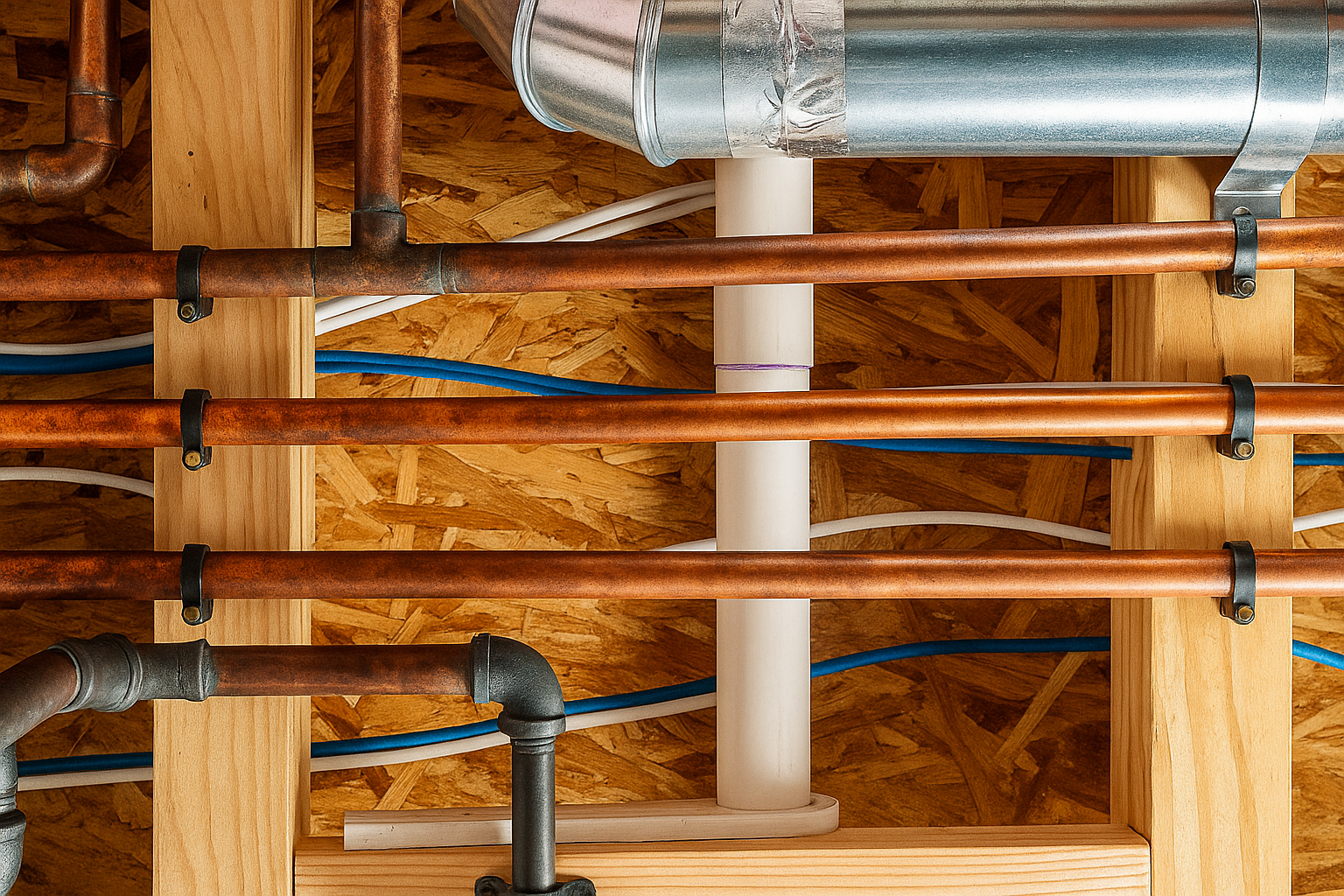
Typical gas appliances in Virginia include:
- Gas furnace
- Water heater
- Range or cooktop
- Dryer
- Fireplace
Each of these appliances adds to your home’s total BTU load. Many Virginia homes use a single main gas line with several branches. NOVA Gas technicians calculate total BTUs and evaluate whether the existing line can handle the load safely.
When a Single Gas Line Works for Multiple Appliances
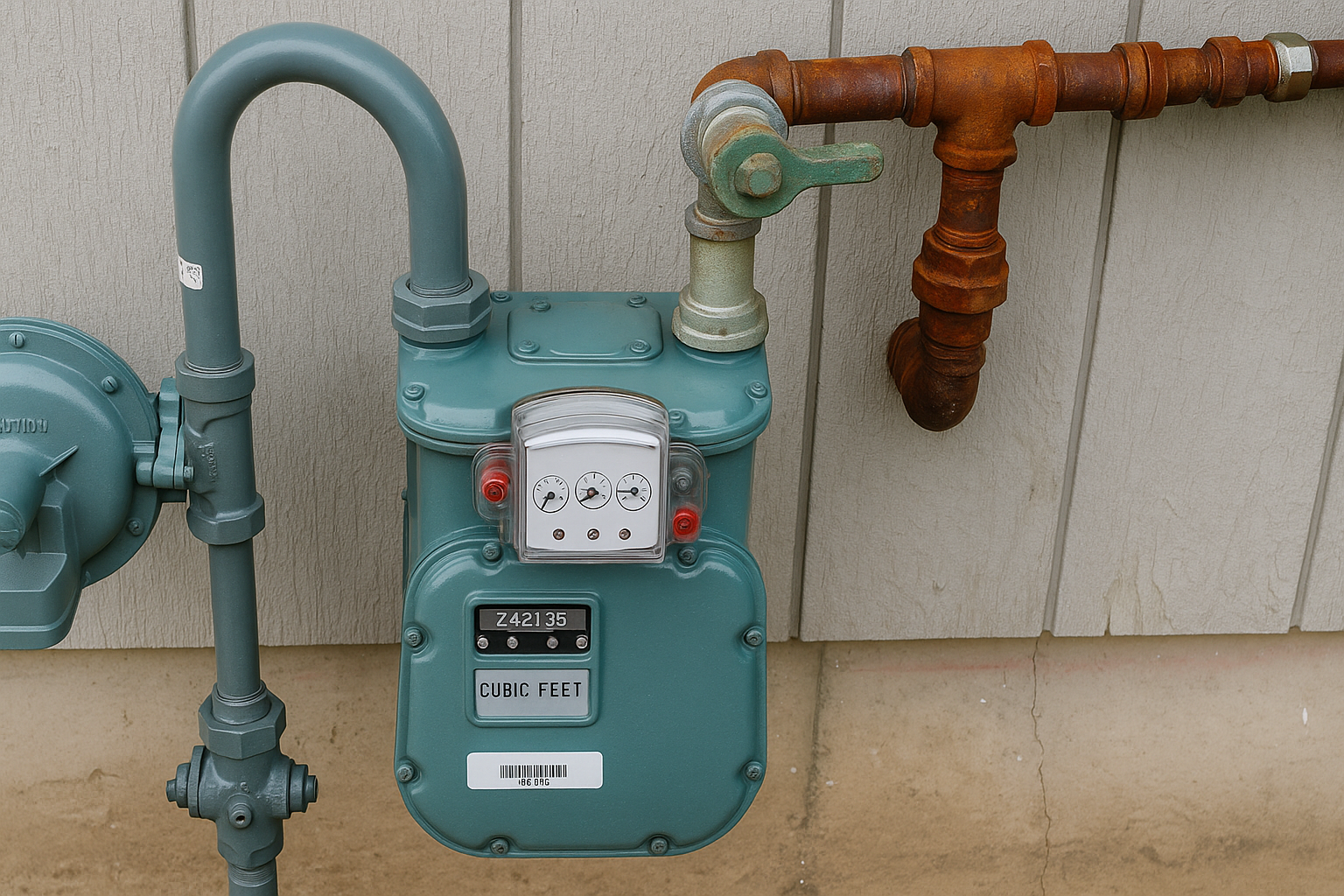
A single gas line can serve multiple appliances if:
- The line diameter is sufficient for total BTUs.
- The pressure remains within manufacturer limits.
- The line is short enough to minimize drop.
- Appliances are distributed efficiently.
Example: A properly sized 1-inch line running a short distance might safely supply a furnace, stove, and water heater, but only after BTU calculations confirm capacity.
Typical Limitations and the “One Appliance Only” Rule
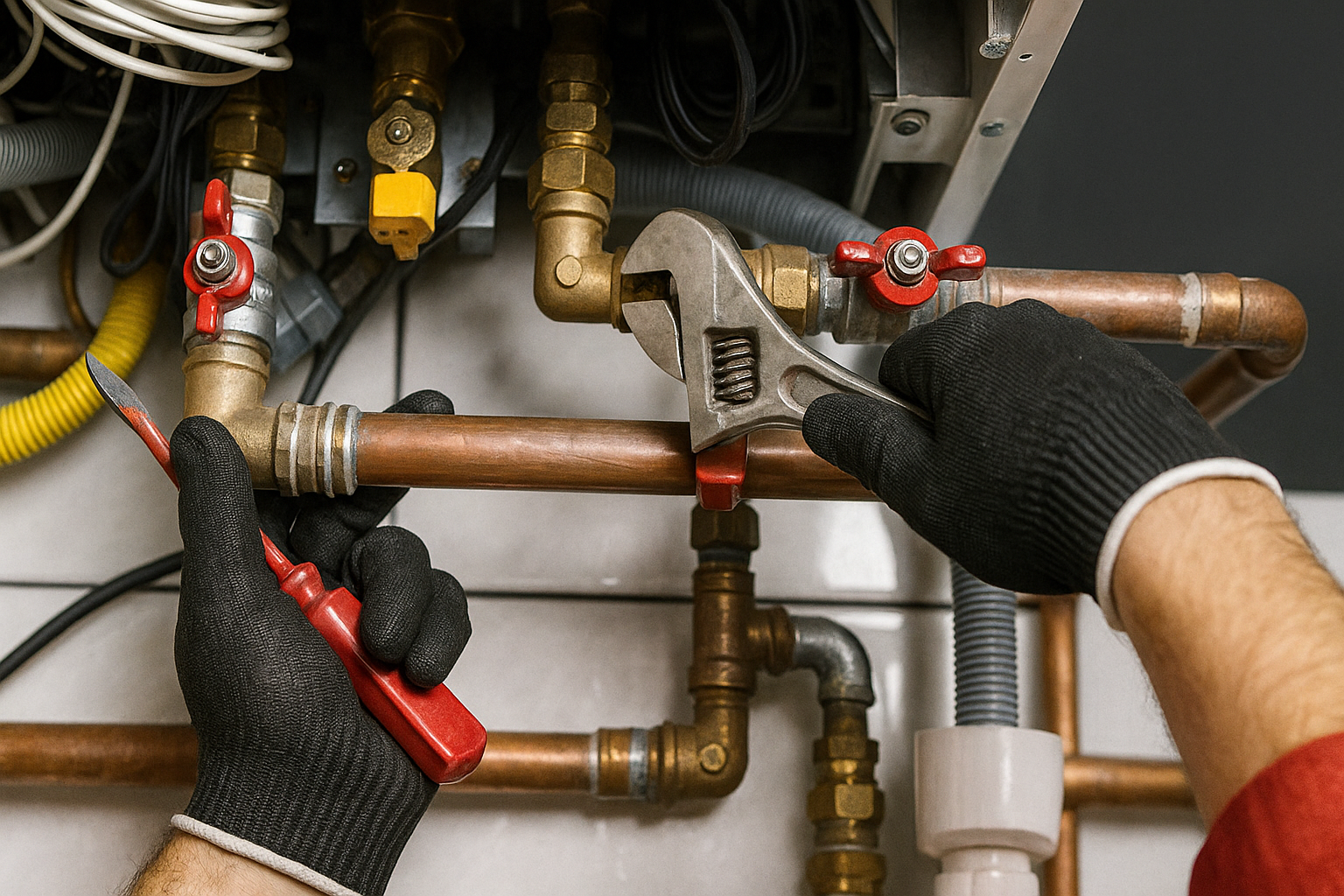
In many homes, a ½-inch gas line supplies only one appliance. Using it for more could starve both appliances of fuel. Low pressure leads to:
- Weak burner flames
- Slow heating
- Flame-outs or incomplete combustion
When homeowners notice flickering stove flames or poor furnace performance, undersized lines are often the cause.
Virginia Code and Permit Considerations
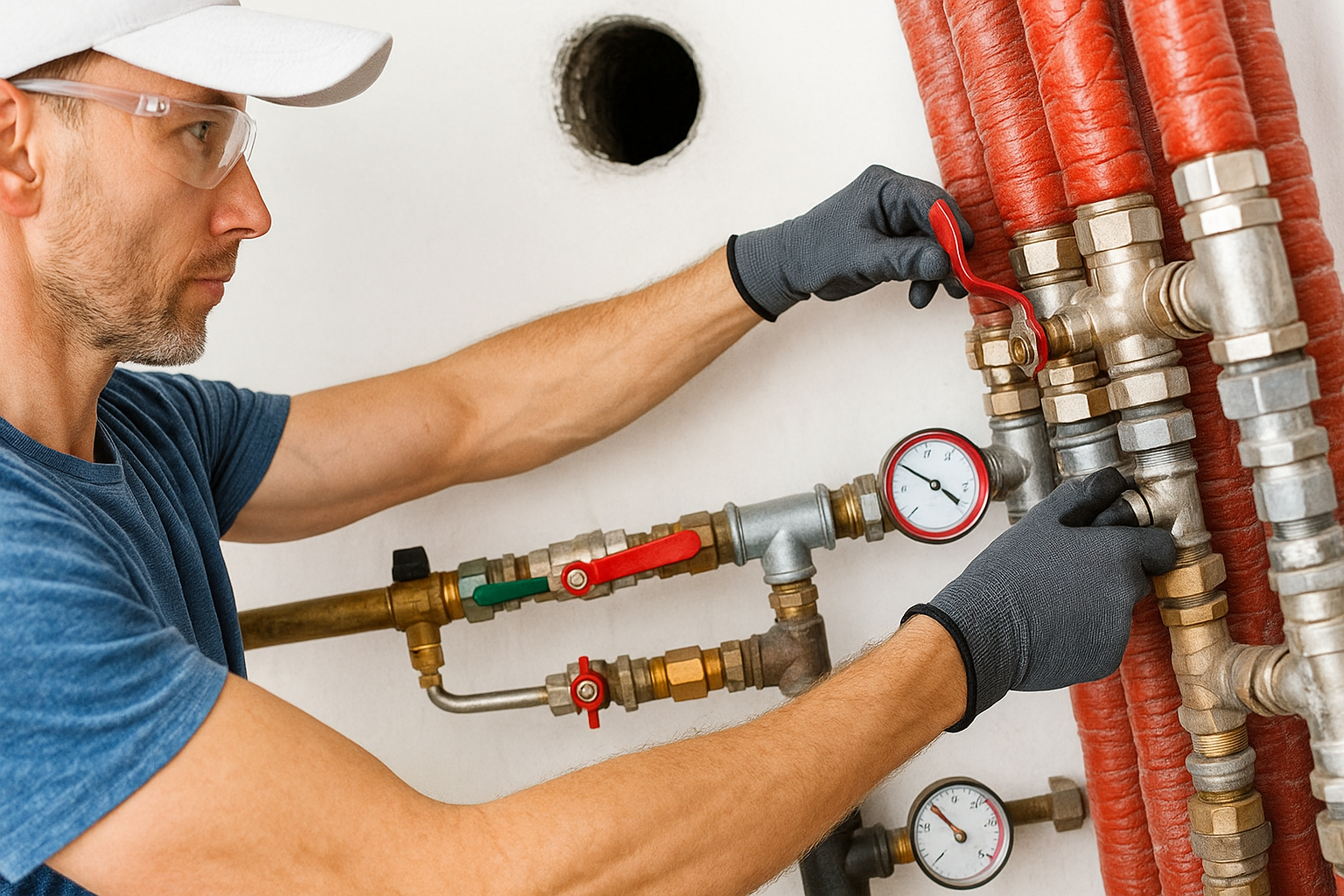
Virginia’s Uniform Statewide Building Code requires that all gas piping meet NFPA 54 (National Fuel Gas Code). Local utilities also have additional requirements. Any modification, such as adding new branches or increasing appliance count, often requires a permit and inspection.
NOVA Gas follows Virginia’s codes for
gas line installation and testing, ensuring compliance and safety from design to final inspection.
Step-by-Step: Evaluating Your Home’s Gas Line Capacity
Step 1: List All Gas Appliances and Their BTU Ratings
Check appliance nameplates or manuals for BTU ratings. Add up all the values to find your total demand.
Step 2: Measure the Line’s Length and Layout
Measure from the gas meter to each appliance, including every branch. Note any tees or fittings.
Step 3: Use a Gas Pipe Sizing Chart
Use a sizing chart that lists maximum BTUs for different diameters and lengths. Match your total load to the chart to find the right pipe size.
Step 4: Consider Future Appliances
If you plan to add a grill, fireplace, or heater later, include them in your BTU total now.
Step 5: Consult a Licensed Professional
A NOVA Gas technician can verify your calculation, perform a pressure test, and recommend upgrades if needed.
Upgrading Gas Lines for Multiple Appliances
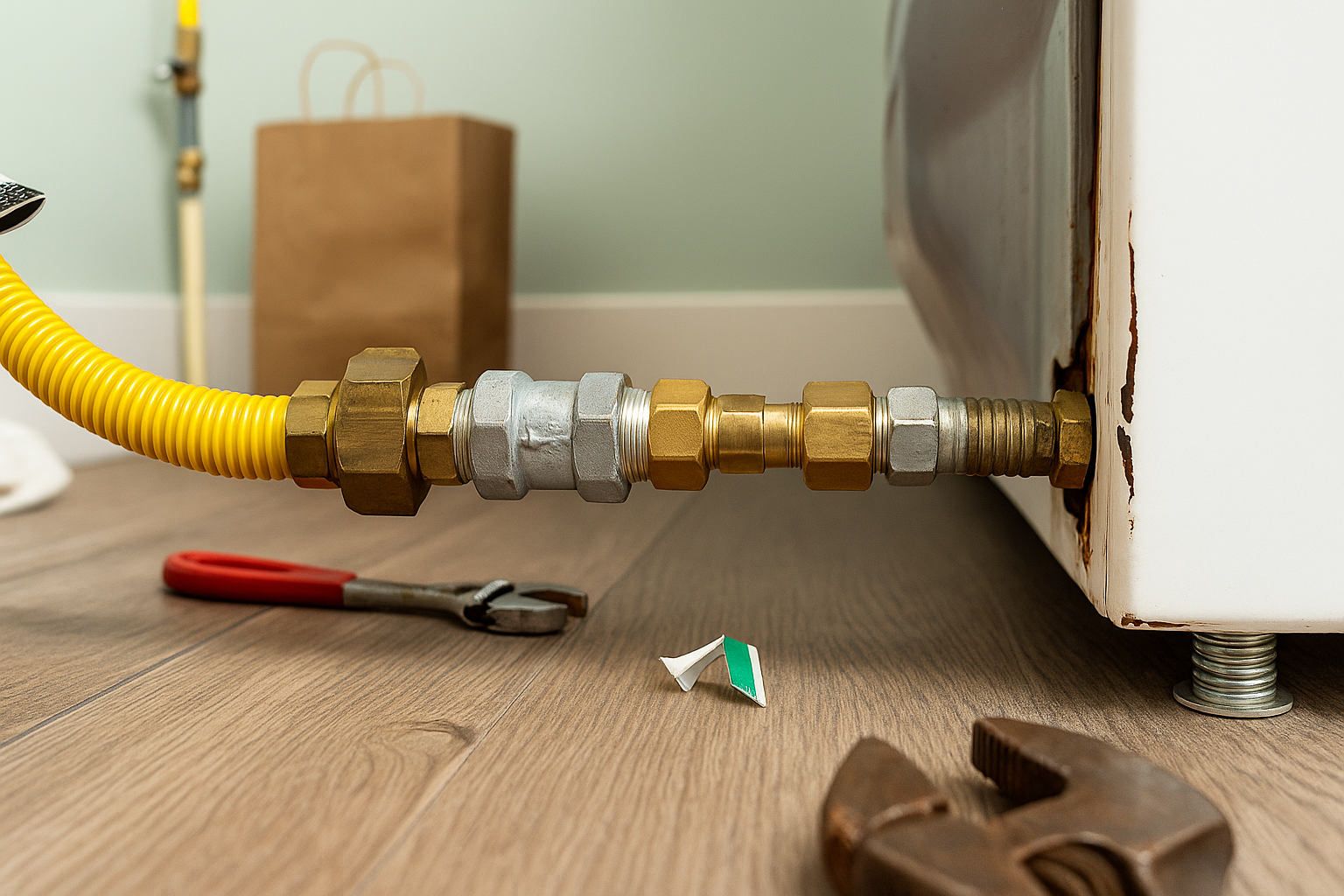
Sometimes the current line is undersized. Common signs include:
- Flame flickering when multiple appliances run
- Unusual gas smells
- Appliances shutting off unexpectedly
- Pressure loss readings during tests
When that happens, you may need to add a gas line or upgrade your existing one to handle the increased demand.
Upgrade options:
- Increase pipe diameter to handle higher BTUs.
- Add a dedicated branch line for heavy-load appliances.
- Use a manifold system that distributes gas evenly to each appliance.
- Reroute lines for shorter runs and reduced pressure loss.
NOVA Gas uses advanced diagnostic tools to determine which option offers the safest and most efficient performance.
Manifold vs Series Gas Piping

Manifold systems distribute gas from one central hub to each appliance. Each line has its own dedicated run.
Series systems connect appliances one after another, where each branch shares flow.
Manifold systems are safer and maintain more consistent pressure but may cost more to install. Series systems are cheaper but less flexible when adding appliances later.
Safety and Professional Inspection
All gas work must be performed by a licensed plumber or certified gas technician. Incorrect pipe sizing or poor connections can cause gas leaks, carbon monoxide buildup, or fire hazards.
At NOVA Gas, every system undergoes:
- Leak testing with pressure gauges.
- Verification against BTU loads.
- Inspection of regulators, valves, and fittings.
- Compliance with Virginia code.
Never attempt DIY gas work. Even small leaks can become serious safety threats.
Signs Your Gas Line Is Undersized
Watch for these symptoms:
- Flame height drops when another appliance turns on.
- Burner flames turn yellow instead of blue.
- Delayed ignition or pilot light issues.
- Unusual smells or whistling sounds from gas lines.
If you see these warning signs, stop using the appliances and contact NOVA Gas immediately for inspection.
How to Plan for Future Appliances

When adding appliances later, size your gas system for expansion. For example:
- Plan for outdoor grills, pool heaters, or generators.
- Keep extra capacity in your main line.
- Use manifolds to simplify future connections.
Planning now avoids the cost of rerouting or replacing lines later. NOVA Gas designs systems that support both current and future needs.
Common Questions About Running Multiple Appliances on One Gas Line
Can I add a new appliance without replacing my line?
Only if the existing line’s capacity exceeds the new total BTUs. A licensed technician can calculate this safely.
Does adding a branch reduce pressure to existing appliances?
Yes, branching divides gas flow and can reduce pressure. Correct sizing or manifolds prevent this problem.
What if my line is ½-inch but my appliances have low BTUs?
It might work if the total load is below the line’s capacity, but it must be verified through testing.
Do outdoor appliances count toward the same gas line?
Yes, every connected appliance adds to total demand, including outdoor equipment.
Is a permit required in Virginia?
Yes, most installations or modifications need inspection and approval under the Virginia building code. NOVA Gas handles this process for homeowners.
Ensuring Safe and Efficient Gas Distribution with NOVA Gas
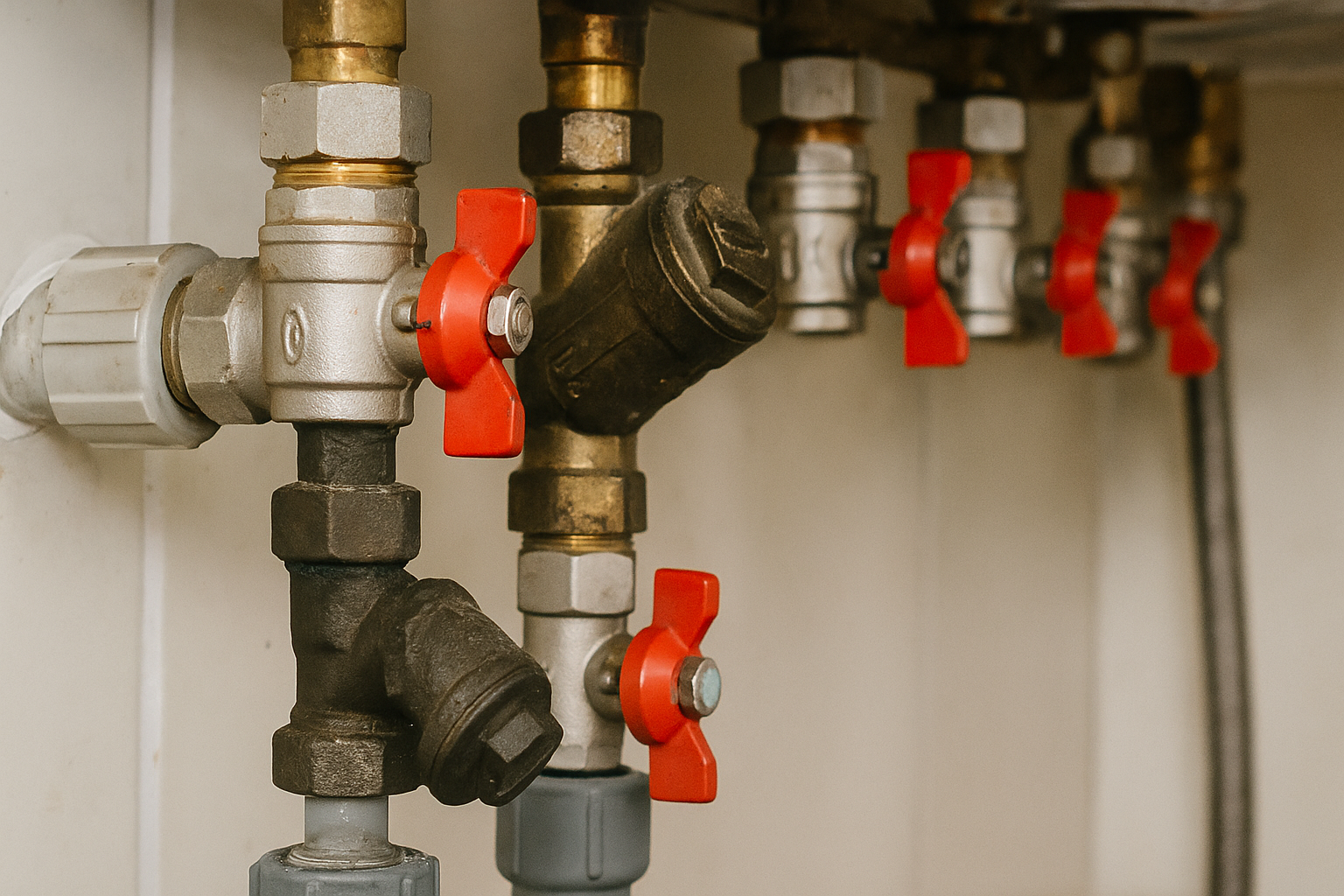
Running multiple appliances on one gas line is possible, but precision matters. The right pipe size, pressure, and layout protect your home and ensure performance. Each Virginia home has different requirements, and what works for one property might not be safe for another.
NOVA Gas provides:
- Complete load calculations and inspections.
- Safe, code-compliant installations.
- Consultation for new appliance additions.
- Long-term planning for gas system expansion.
Homeowners across Virginia rely on NOVA Gas to keep their systems safe, efficient, and ready for future growth.
